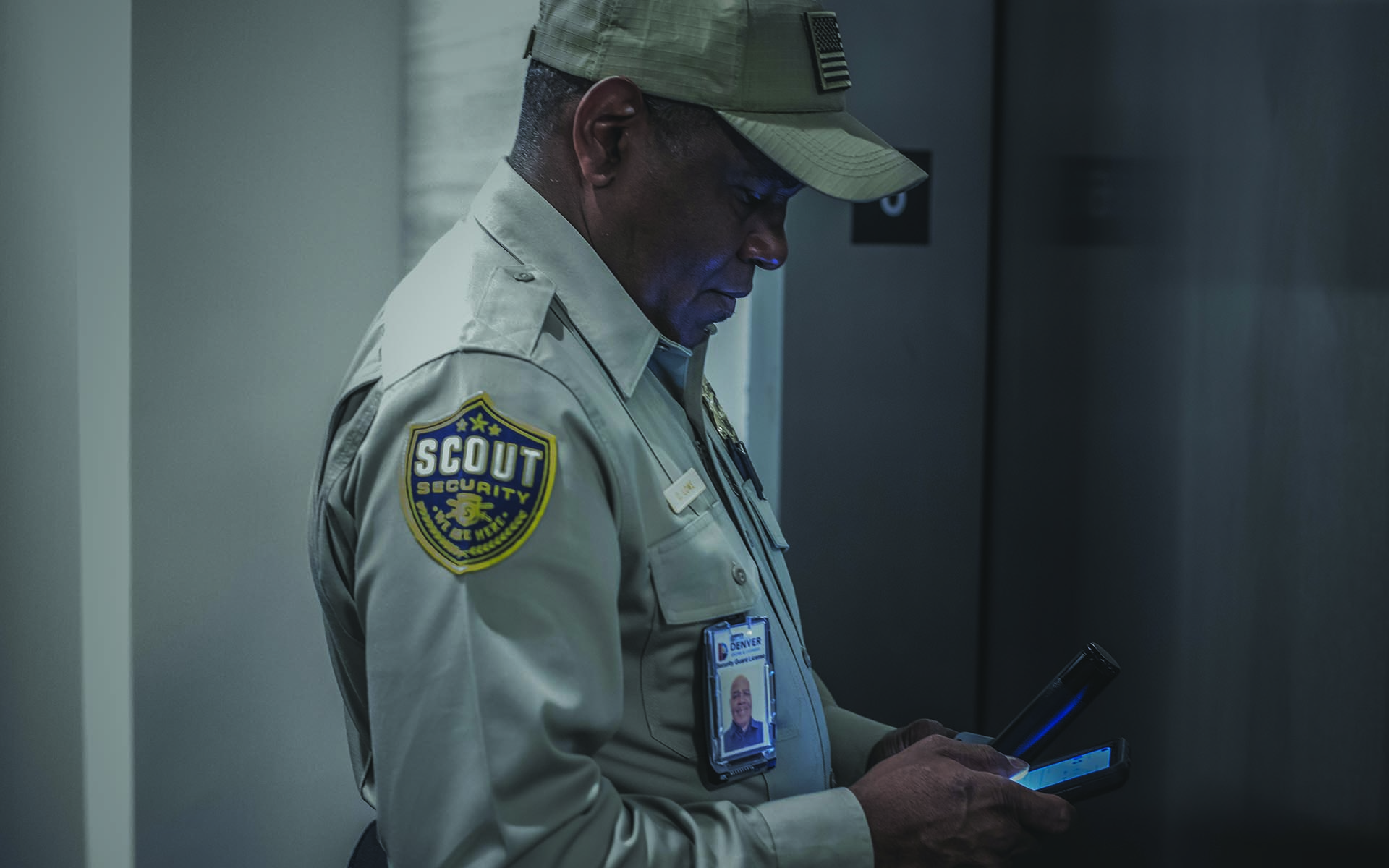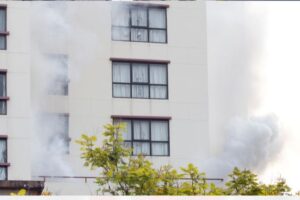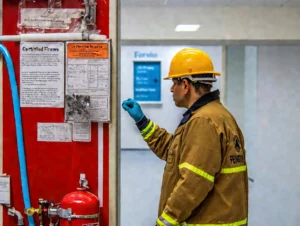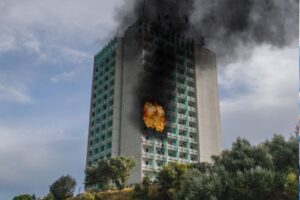A Security Guard (also known as a security inspector, Security Officer, or protective agent) is an individual hired by the government or a private party to protect the employer’s properties (land, staff, machinery, money, and so on) from a variety of hazards (such as pollution, lost property, hazardous worker conduct, illegal activity such as burglary, and so on) by imposing preventative measures. Security guards accomplish this by maintaining a high-visibility presence to deter illegal and inappropriate behavior, looking for signs of crime or other hazards (such as a fire) (either directly, through patrols, or indirectly, through monitoring alarm systems or video surveillance cameras), taking action to minimize damage (such as warning and escorting trespassers off property), and reporting any incidents.
Security officers are usually dressed in uniform to show that they have the legal right to defend private property. Judicial laws prescribe security guards in general, laying out the conditions for qualifications (such as a criminal background check) and the powers that a security guard has in a particular jurisdiction. The powers granted to security guards vary depending on the country and subnational authority. Businesses, federal departments and institutions, and not-for-profit groups are among the organizations that employ security officers (e.g., churches and charitable organizations).
SECURITY GUARD SERVICES:
The “detect, prevent, analyses, and record” approach is used by many defense companies and corporate security departments. Security officers are not expected to make arrests, but they do have the power to make a citizen’s arrest or serve as a law enforcement agent in such situations, such as when a police officer or sheriff requests it.
Insurance providers (particularly fire insurance carriers) would offer significant premium cuts to locations with a 24-hour presence, which is a huge economic argument for security officers. The discount on a high-risk or high-value property will always outweigh the money invested on its protection policy.
SECURITY GUARD SERVICES IN DENVER COLORADO:
Off Duty Officers has been the top alternative for trained top security guard services for companies in Colorado since 1993. Our Colorado clients will believe that they are recruiting experienced security guards of the highest quality possible in the state because we are a pioneer in the industry. Armed and unarmed police, fire watch patrols, special occasion surveillance, building site security, VIP and private security, occupational crime security, and community security are just some of the services we provide. Our guards can be deployed when and when you need them, mostly within hours, for companies in all industries.
SECURITY GUARD COMPANIES:
Personnel in the security field was listed as one of the following:
- “In-house” or “proprietary” (i.e., staffed by the same corporation or agency that they serve, such as a mall, amusement park, or casino); formerly known in the United Kingdom as “works police” or “security police.”
- Clients and workers are met with as required by the “security boss” to ensure customer and employee satisfaction.
- “Scheduler,” Security Officer selection, and proactive scheduling aid in customer loyalty, staff engagement, and expense control within the District’s budget.
- Effective delivery of human resources programs such as recruitment, employee/labor relations, pensions, pension administration, preparation and advancement, employees’ compensation, and audit enforcement is the responsibility of the “Human Resources Manager.” Maintains and promotes employment-related business practices and initiatives.
- “Client Service Manager” ensures client continuity, Security Officer retention, and funding for the advancement of new enterprise to help the District prosper financially.
- Customer loyalty, Security Officer retention, and financial development are all benefits of the “Client Service Supervisor” role.
- Acting as a “Contract” with a private security firm that covers a variety of locations.
- An individual employing or assigned as a (usually armed) security officer by a government or government department is known as “public security.”
- “Special Police,” or “Private Police Officers.”
- Vehicle patrol officers who cover several client locations are known as “Private Patrol Officers.”
- “Parapolice” are violent companies that regularly investigate and apprehend criminals.




